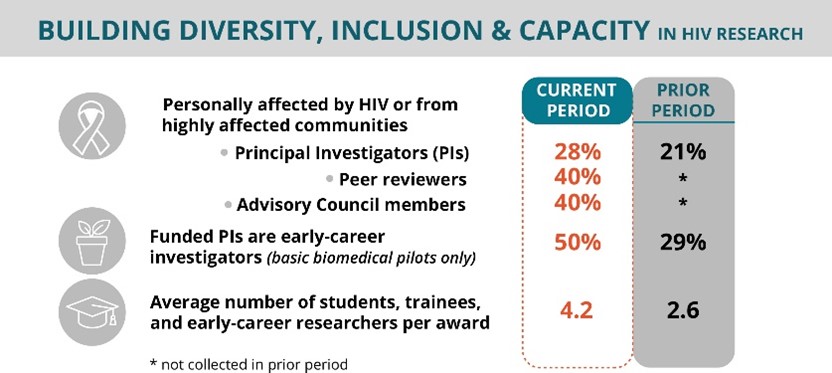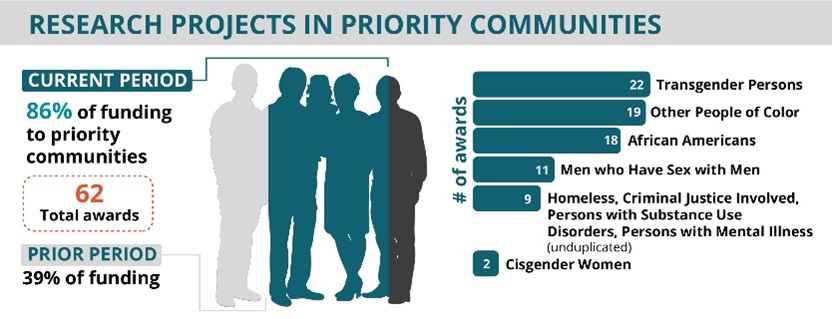Gender Equity and Social Inclusion in our Grantmaking
CHRP is committed to gender equity, social inclusion, diversity, and justice as means of increasing the effectiveness of its grantmaking and generating new knowledge that benefits all Californians. Our recent efforts to measure these aspects of our work and then improve our efforts include:
Gender Equity: A CHRP-funded basic biomedical study sought to bring equity to standard kidney function estimating equations, which historically specify both gender (limited to male/female) and race (limited to Black/Non-Black), which are important aspects of health care among persons taking anti-retroviral therapy for prevention or treatment. Dr. Nimish Patel at the University of California San Diego and colleagues performed a prospective cohort study and directly measured glomerular filtration rate (mGFR) in transgender persons and others, with the aim of creating a minimally invasive and race - and gender-free equation to predict kidney function. They succeeded, validating serum and urinary creatinine measures that predicted mGFR within 30% (industry standard) in 96% of study participants. Data will be presented later this year.
Social Inclusion: CHRP seeks to increase the representation of persons who identify as personally affected by HIV, or from a highly affected community, among those Principal Investigators who receive funding. We found that between 2010 and 2015, 21% of our PIs identified as such; this improved to 28% between 2015 and 2020. This year, we are working to continually increase this proportion.

Diversity: To continue strengthening diversity in the pipeline of future HIV researchers, CHRP has funded three cycles of Diversity Supplements to our Basic Biomedical Pilot Studies awards. One of our first grantees, Cyrus Hajian, is a first-generation college student who was attending community college with plans to become a physician scientist. Cyrus received salary and transportation support to work alongside their mentor in a CHRP-funded lab, where they learned how to clone RNA vectors to knockdown HIV repressors in models of HIV latency, and how to validate single-guide RNA sequences. Cyrus has since transferred to Stanford, earned a 4.0 GPA, and has a scientific manuscript in press. They said “I truly believe I would not be where I am today if not for CHRP funding my time at the lab.”
Justice: To address the historical systematic exclusion of minoritized communities, CHRP is working to ensure that our research support proactively goes to these communities. We have improved: between 2010 and 2015, 39% of all of our funding supported work in California’s priority communities.

